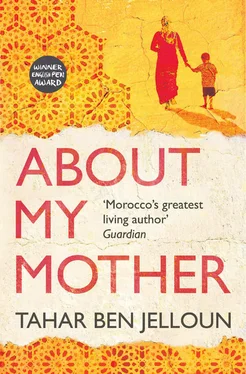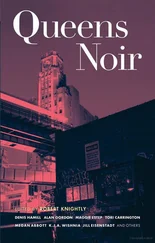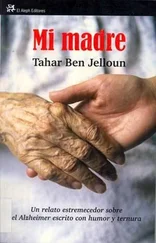It is true that ‘blood ties corrupt everything’. But we agree to play the game even to the point of accepting this nasty side of ourselves. I haven’t felt the need to be hypocritical, or cynical and cruel. My mother’s disarming. Her gaze, her implicit emotional blackmail, her increasingly nebulous demands don’t make me feel sadness or compassion but fill me with irrational, selfless love.
As a keen reader of Nietzsche, I’m sometimes shocked by his tumultuous relationships with his sister and his mother. He says he regretted developing the concept of ‘eternal recurrence’ because it might allow those ‘infernal machines’ to come back. It’s easy to imagine Nietzsche, born of an unknown mother, living with no family, alone on his mountain peak, the image of Zarathustra. But when he was annoyed with his mother, he’d write letters asking for the sausages she used to cook for him when he was a child!
I don’t write to my mother. I speak to her. I can no longer ask her to make me a plate of lentils or broad beans in olive oil the way she used to, some years ago.
My mother’s become ‘crabby and temperamental’ too. Illness, boredom and loneliness have brought out the worst in her. She’s not a tyrant, but does enjoy exerting her authority over Keltum. She insists she’s in charge, constantly repeats herself and exhausts everyone around her. Sometimes she realises what she’s doing and asks us not to take any notice of these ‘little things’.
These ‘little things’ are becoming more and more of a problem. She’d like someone to come and cut her toenails: Keltum bought some blunt nail-clippers. She’d like Keltum to scratch her back without rushing or nagging her, to be able to go to the bathroom without having to lean on her arm. She’d like to have money on her, to throw down the toilet. She’d like to find her jewellery and wear it as if it were a festive occasion, to go out, walk and even run.
My mother hasn’t fasted for over twenty years. The doctors had a hard job persuading her not to keep Ramadan back then. She feels guilty and says that she’ll repay her debt to God when she’s better. She asks me what I do in France during Ramadan. I explain that the religious and spiritual atmosphere in France isn’t conducive to fasting and I don’t always observe the strict rules involved. She doesn’t take offence or reprimand me, but says: ‘That’s between you and God.’ I love this tolerance.
My parents never forced us to be observant. I remember the harsh winters in Fez. We had to get up early to go and fetch water from the well. Washing with freezing water was an ordeal, and I dreaded those cold mornings. One day, my father summoned my brother and me and said: ‘Prayer is one of the five pillars of Islam. You must pray five times a day. You can even say all five at the end of the day. It’s not a punishment. If you don’t feel the need to pray, then don’t pray. But don’t pretend, there’s no point. On the day of the Last Judgement, you will be alone with your conscience before God. You’ll be answerable to the Supreme Being for your actions. It’s up to you to decide. I’ll never force you to believe. I’ve done my duty in showing you the path. Besides, Islam is straightforward: to be a good Muslim, it’s enough to believe in the one and only God and His Prophet Muhammad, the last of the divine prophets, to behave decently, respecting your parents and the elderly, and not to lie, steal, kill, or hurt others deliberately. As for the rest, it’s your choice whether to pray, fast and go to Mecca — those are all external manifestations. Take me, for example: I have no desire to go to Mecca to be exploited by unscrupulous Saudis or trampled on by African giants. And yet I’m a Muslim and have no reason to reproach myself. It’s up to you. There are no obligations in Islam, the Prophet himself said so. Do as your conscience dictates.’
Those words, uttered matter-of-factly, were a liberation. I’ll never be able to thank my father enough for treating me like an adult. I must have been seven or eight years old. We were still in Fez. My mother wasn’t aware of what my father had said to us. But she was equally tolerant.
I’m not sure where it comes from, but anxiety is a given in our family. It’s been passed on from generation to generation. Dread, the idea of loss, fear of an accident … our life’s been beset by worry. I can’t think which of my parents was the most apprehensive. I think my father transmitted the habit to my mother. Still today, if I’m an hour late for lunch, my mother has palpitations and turns pale. She instantly imagines the worst. When she was well, she’d sit by the window and wait. Sometimes she’d throw on a djellaba and go out into the street, hoping to make me come more quickly. All Mediterranean mothers are anxious creatures. Mine must be a little more so than others. I couldn’t stand her excessive shows of affection. I’d be irritated, I’d protest, and afterwards be angry with myself. I was ashamed to have hurt my poor mother. She’d be relieved and say: ‘When you have children, you’ll see. Your heart won’t be able to stand what mine’s already had to bear!’ Then, when she was calm again, she’d add: ‘I know it annoys you, but it’s the way God made me. He’s the one who gave me such a sensitive soul. There’s nothing I can do, I don’t think I’ll ever change. If one of my children’s away from home, if I don’t know where they are or what they’re doing, I can’t sleep. That’s just the way it is; my heart goes wild, half-crazy; there’s no logic to it. It beats louder when I think of you. Life’s so unpredictable, so full of accidents, you must try to understand. You’ll see in time!’
In time, I’ve neither understood nor accepted this stifling affection. I try not to replicate this behaviour with my own children. But I confess that my parents have passed on their tendency to fret and worry.
I was sixteen when I attended my first political meeting. We’d met at a friend’s house to form a high-school students’ union to fight repression in Morocco. I’d come home at about two o’clock in the morning. My parents were on the doorstep, my father threatening, my mother in tears. Before my father started on me, I kissed my mother’s hand and asked her forgiveness: ‘I was at a meeting. We’re going to organise strikes to stop the police beating us up!’ My parents were alarmed. ‘No more meetings! No more politics!’ yelled my father. He knew what the Moroccan police were like. One summer, while we were on holiday staying with my cousins in Casablanca, our house was burgled. My father, in a calm and determined voice, asked us not to touch anything. The police had to come and take fingerprints, make a report. Our poor father! He thought he was in an American cop film. The police turned up and took him away in a van. He was ashamed: all the neighbours came out to watch the scene. The police treated him as if he were the thief. At the police station, he’d been left to wait in a corridor. Many hours later, he was interrogated, like a hooligan. They quizzed him relentlessly about his children, his business and his habits. In the end he stood up and said, with typically mordant humour that was completely lost on the police: ‘I’m sorry, gentlemen, I swear I won’t do it again, this is the very last time. Now let me go.’
So in the end we didn’t file a complaint and my father said to us solemnly: ‘In this country, it’s the plaintiff, the person that’s been attacked and robbed, who’s judged, not the thief, who shares the spoils with his police pals. Make sure you never fall into their hands. They’re people with no principles, no education. That’s how it is here, this isn’t Sweden!’
Later, when my parents heard about my political meeting, they saw the spectre of the police descending on the house.
Читать дальше












